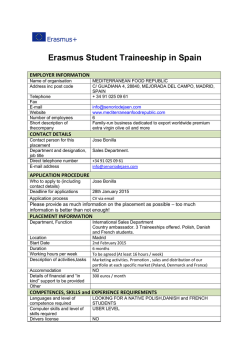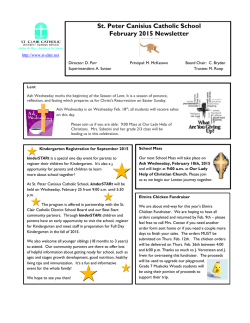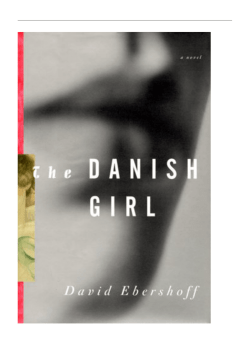
Ieselescorial – My WordPress Blog
1 NEW BERY MEDAL ACCEPTANCE NUMBER THE STARS, 1990 For years, I have carried in my wallet, stuck in there among the frequent flyer cards and the MasterCard carbons and the cash register receipts from the supermarket, two little wrinkled slips of paper which are fortunes from Chinese fortune cookies. Like everyone else, I've gotten countless fortunes from Chinese fortune cookies, and, like everyone else, I tend to throw them away. Let's face it: fortune cookie fortunes' are generally boring. They need better writers — and editors — in Chinese fortune cookie factories. But I've saved these two because I have wanted each of them to come true. And now they both have, both on the same night. One says: "YOU WILL BE FAMOUS IN A FAR-OUT PROFESSION." And the other: "YOU WILL ATTEND A PARTY WHERE STRANGE CUSTOMS PREVAIL." No, I don't really think that this is a far-out profession. But I'm aware that other people do. Let me describe for you the most recent evidence of that. 2 It has become customary for winners of this award to describe the circumstances in which they were notified that they have won the Newbery Medal. It's a little, I think, like the old come-as-you-are party, when the hosts phone with the invitation and hope to catch people in their nightclothes or bathing suits. And so we all know that Sid Fleischman was in the shower — a nude Newbery winner! The committee must have loved it. And Paul Fleischman was at the dentist: not as good as nude, but horizontal and probably in pain — it's a close second. I myself spend a normal amount of time in the shower, and lately a greater-than-normal amount of time at the dentist; but I wasn't doing either of those things when the Newbery Committee called me. I was sitting at my desk, fully clothed and completely vertical, writing, the way I am almost every day of my life. Maybe the committee was aware that "sitting at my desk, writing" was not going to make an amusing anecdote for an acceptance speech. Maybe that's why, when they called, they asked if I would be willing to get on a plane that afternoon and fly to New York in order to appear on the "Today" show the following morning. This was January, remember. This was Boston. Outside, there were snowflakes beginning to fall. A lot of snowflakes. Anyone in his 3 right mind would have looked out of the window and said, "This is January; this is Boston; it is snowing outside; and you want me to get on a plane? What are you, crazy?" But when they call and tell you that you have won the Newbery Medal, you instantly turn into a person who is no longer in his right mind. And so I said, "Of course." I packed a small suitcase and went to Logan that afternoon and boarded the 4:30 P.M. Pan Am shuttle to New York, a flight that takes one hour. Seven hours later, at 11:30 P.M., I was still on the same plane, but now it was sitting, buried in snow, on an abandoned airstrip in upstate New York, where it had had to land after circling and circling and finally running low on fuel. A certain grim camaraderie springs up among strangers who are stranded on an abandoned airstrip. Tales of woe are exchanged. We all felt genuinely concerned for the lady who had left her children with a baby sitter and promised the baby sitter, who had another commitment, that she would be home by seven o'clock. We chuckled ruefully with the man who was missing his son's Cub Scout banquet. But I think that if a vote had been taken — maybe an applause meter, the way they used to do it on the old "Queen for a Day" show — I would have won, for the 4 saddest tale. The Woman Who Is Supposed to Be on the "Today" Show at Dawn: that was me. I was seated in the first row of the plane, but even the folks way in the back, in what used to be the smoking section — they were murmuring, back there, about me, and occasionally standing up and peering, just to get a glimpse of the Woman Who Is Supposed to Be on the "Today" Show. I finally reached my hotel in New York at 2:00 A.M., and the "Today" show car picked me up, as promised, at 6:30 in the morning. I had planned, the day before, before leaving Boston, to be charming and witty on the "Today" show. By now, though, I was simply hoping to be awake on the "Today" show. And so I sat there, in the waiting room, along with Ed Young — who lives in New York, lucky man — and I drank coffee. And more coffee, and more coffee. Also in the waiting room, scheduled to be interviewed that morning as well, were a Catholic priest who writes sexy novels and a very thin French actress who had just been nominated for an Academy Award. I noticed, thumbtacked on a small bulletin board,, little cards describing the scheduled interviews. "Andrew Greeley," one card said; that was the Catholic priest. "Isabelle Adjani," said another; that was the actress. 5 And then there was one remaining little white card that said simply, "2 KIDS BOOKS PEOPLE." After a while someone came into the room and glanced at those cards. Then he glanced at those of us sitting there. "The space shuttle's going off and we have to show it live," he said, "so we're going to drop one interview." He looked at Andrew Greeley, who was chatting with Gene Shalit as if they were old pals. And he looked at Isabelle Adjani, who didn't bother looking back because she was looking into a mirror, pinching her own cheeks, and murmuring, "I feel pale today." And finally, he looked at Ed Young and me. He looked back at the cards, to see who we were. 2 KIDS BOOKS PEOPLE: that's who we were. Then he took the thumbtack out of that card, and removed us from the bulletin board. Maybe this is a far-out profession, after all. It sure felt like it that morning. Some of you may have seen Ed and me on the "Today" show, so I will explain that they did tape an interview, and showed it later, to the other time zones. That included, I think, all time zones in which I have no living relatives or friends. Ed looked very charming, and I looked very sleepy. When Deborah Norville asked me, "Your friend — the one whose story this book was based on — did you call her last 6 night to tell her it had won the Newbery Medal?" I scowled at her and said testily, "How on earth could I do that? I was circling La Guardia." I called my friend Annelise the next day. She is here tonight. And it is time for me to tell you a little about her, and her people, and the book that I wrote to honor them. During the same years that I was a child growing up in a small Pennsylvania town — the years of World War II — Annelise was a child growing up in Copenhagen. I didn't know her then, of course. My entire knowledge of cultural geography in those years came from the books by Lucy Fitch Perkins. I probably thought that all children in foreign countries were twins. I read about the Belgian Twins, and the Scottish Twins, and the Dutch Twins, and if there were Danish Twins in that series — I no longer remember — then I read about the Danish Twins as well. Certainly as I became older, I read about the roles of various nations during that war, and I read about the Danish people and how they saved their Jewish population. But when Annelise and I became friends, some twenty years ago, when she was living in the United States, it never occurred to me to ask her about what I thought 7 of in some vague way as "history." I asked her, instead, as I ask all my friends (and an occasional startled stranger on an airplane), about her childhood. And Annelise — a good storyteller, like all Danes — told me a lot of details of her growing-up years, so I began to know about her family, their home in Copenhagen, her school days, the clothes she wore, the games she played with friends. I feel, still, as if I know her mother's little garden as well as I do my own. Our talk wasn't always light-hearted talk of gardens and games, but it was always personal memories. We had each, when we were young, lost a greatly loved older sister. We talked a lot about that, Annelise and I; and about the effect on an entire family when the oldest child dies too soon, too young. Two years ago, in the spring of 1988, Annelise and I took a vacation together. Always, before, our times together had been interrupted by jobs or friends or children. But now we stayed, just the two of us, for a week in a little guest house in Bermuda, and it was the first time we had, for an extended, uninterrupted period, talked and talked and talked. This time, for the first time, talking of the past, I became truly aware of the way her childhood was colored by war. Not just colored by the concept of war 8 in a broad and abstract sense, the way my own childhood had been; but war through the perceptions of a child in a conquered country: humorous perceptions, sometimes; frightened ones, occasionally; uncomprehending, often. For the first time — why did it take me so long? — I really understood that historic events and day-to-day life are not separate things. We all know that the events that happened under the regime of the Third Reich were the most huge and horrible events in the history of mankind. But when I asked Annelise to describe her childhood then, she didn't describe anything huge and horrible. She said things like: "I remember being cold." And: "I remember wearing mittens to bed." Those were exactly the kinds of things — the small, almost inconsequential details of a child's life, from day to day, that I realized, quite suddenly, would tell a larger story. I would be a terrible newspaper reporter because I can't write well about huge events. They use the verb cover in newsrooms. They send reporters out to "cover" things. But if they sent me out to "cover" some catastrophe, I would stand there watching while flood water carried away houses, and flames spurted 9 into the sky, and buildings toppled, and victims were extricated by the hundreds. I would watch it all, and I would see it all. But I would write about a broken lunch box lying shattered in a puddle. As a writer, I find that I can only cover the small and the ordinary — the mittens on a shivering child — and hope that they evoke the larger events. The huge and horrible are beyond my powers. This is, of course, not the only way of doing things. But I think it is a valid and effective way. Let me read you a poem, "Musee des Beaux Arts," one of my favorites, by Auden, one of my favorite poets. He wrote here about Brueghel's painting called The Fall of Icarus, which hangs in the Musee des Beaux Arts — the Museum of Fine Arts — in Brussels. About suffering they were never wrong, The Old Masters: how well they understood Its human position; how it takes place While someone else is eating or opening a window or just walking dully along: How, when the aged are reverently, passionately waiting For the miraculous birth, there always must be 10 Children who did not specially want it to happen, skating On a pond at the edge of the wood: They never forgot That even the dreadful martyrdom must run its course Anyhow in a corner, some untidy spot Where the dogs go on with their doggy life and the torturer's horse Scratches its innocent behind on a tree. In Brueghel's Icarus, for instance: how everything turns away Quite leisurely from the disaster; the ploughman may Have heard the splash, the forsaken cry. But for him it was not an important failure; the sun shone As it had to on the white legs disappearing into the green Water; and the expensive delicate ship that must have seen Something amazing, a boy falling out of the sky, 11 Had somewhere to get to and sailed calmly on. I don't think this poem — which tells of children on a pond, skating, not noticing that a horrifying thing is happening in the sky — is a poem about human indifference. It's about human incomprehension, and our inability to integrate into our daily consciousness the fact that something terrible is happening. We hear a splash, or a cry — but we don't understand its importance. We continue to plough our field, or sail our ship calmly on. We eat; we open a window; we walk dully along. The dog yawns; the horse scratches its behind; the sun shines on the legs disappearing into the green water. And the child skates on a pond at the edge of a wood. The Danish people were the only entire nation of people in the world who heard the splash and the cry and did not, in 1943 — in the poet's words — turn away quite leisurely from the disaster. But because that was a huge event, I couldn't "cover" it. I could only write about the child who skates on the pond at the edge of events. The day-to-day life of a child in that place, at that time. My friend Annelise gave me the glimpses I needed of that child. She told me what a little girl would have 12 worn to school, and how she would have carried her schoolbooks in a stiff leather knapsack. I put those things into the book. She told me what the family dog, in a Danish family, would have been named. I put the dog in, and gave him that name. And she corrected me when I had written apple pie into the manuscript. "Haven't you ever heard the phrase, 'as American as apple pie'?" she asked me. And so the apple pie — which the Danes would never have heard of — turned into applesauce (a much less satisfying dessert, in my opinion, but a more realistic one) in the final revision. She introduced me to a woman in Copenhagen named Kirsten Krogh, an older woman who was a young bride at the time of the German occupation. It was Kirsten Krogh — who with her husband had been involved in the Resistance movement — who told me what novel a young mother would have read, and loved, during those years. It surprised me. Gone with the Wind? An American novel about a feisty Southerner named Scarlett who pushed and shoved her way around Atlanta as it burned? But I shouldn't have been surprised, because it connected with something else that Kirsten Krogh told me. When I asked her what was the worst single 13 thing she remembered from those years, she thought about her answer for a long time. Then she said: "the powerlessness." Of course they loved Scarlett O'Hara. I put Gone with the Wind in the book, too. And it was Kirsten Krogh who told me what flowers would be in bloom along the Danish coast in autumn, and, in telling me, reminded me that flowers continue to bloom in terrible times, and that children still play with kittens. I put in the flowers, and a kitten. In Denmark I collected countless details to add to those that Annelise and Kirsten told me of their own lives during the war years. In Copenhagen I saw a pair of shoes made from fish skin. It was true, of course, that during the occupation the Danes couldn't import anything, so there was no leather for shoes. And surely it was a marvel of ingenuity that they figured out how to make shoes from the skin of fish. But when I saw the shoes, I didn't think about the economic consequences of war. I couldn't even marvel at the craftsmanship or the cleverness, because I was living, by then, completely in the consciousness of a little girl: a little girl who wouldn't know — or care — about imports or economics. All I 14 could think was what that child would think, on being given such a pair of shoes: Oh, they're so ugly. And I put the ugly shoes, and the child's reaction, into the book . When I asked Annelise to describe, through the eyes of her own childhood, the German soldiers themselves, she said: "I remember the high shiny boots." As all writers do, I had to sift and sort through the details and select what to use. There were some that I had to discard, though I didn't want to. The image of wearing mittens to bed was one of those that eventually I had to let go of. The events about which I wrote took place entirely in October — it simply wasn't mitten weather yet. But I would ask you all tonight, sitting here as we are in great comfort and luxury, to remember that in the winter of 1943 a little girl wore mittens to bed because she was cold. I certainly did use — and use and use — those high shiny boots. Annelise had mentioned them first, and then, when I pored over the old photographs, I saw them myself, again and again. When I had delivered the completed manuscript to my editor, he called it to my attention. Walter Lorraine has been my editor — and friend — for seventeen books. I listen to what he says with great respect, and 15 though we occasionally argue, he is almost always right. This time he said that there were too many references in the book to the shiny boots. And I listened. I listened with respect. But I looked at the photographs again, and I tried to place myself within the visual awareness of a child. Sometimes we forget that their vantage point is lower than ours. They don't look into adult faces. Certainly a frightened child would not look into the faces of enemy soldiers. As Annelise did, the child would see — and notice, more than an adult — those terrifying boots. I asked Walter to give me a little time to make that decision, and he agreed. That fall, the fall of 1988, when this book had been written and was still in the late stages of editing, I was sent by my British publisher on a tour of Australia and New Zealand. I had just seen the first preliminary design for the cover of Number the Stars (Houghton), the first time I had seen the art director's — Sue Sherman's — plan to use that beautiful gold necklace, with the Star of David, embossed against the haunting face of the young girl. When I was in Brisbane, Australia, I met a woman, slightly younger than I, who was wearing an identical necklace. It is not an unusual necklace — indeed, its simplicity is what makes it so beautiful. But when I 16 saw it around her neck, I described the book, and its cover, to the woman. And she told me her story. I think she would not mind my retelling it, to you. She had been born in Holland, to a Jewish mother and a Christian father. That mixed parentage made her a potential victim, of course, of the Nazis. So her parents had created a hiding place under the floorboards of their Amsterdam apartment — a place to hide a tiny child, if the moment should come when it was needed. As we know, those terrible moments did come; they came all too often. When the Nazis banged on the door of that Amsterdam apartment, as they did on the door of the Copenhagen apartment in my book, this little girl, no more than a toddler, was quickly lifted into the hiding place. She huddled there and watched through a crack in the boards while they took her mother away. She told me that she wears the necklace in memory of the mother she never saw again. I asked her, as we sat there talking, if she remembered any of it. She said that the memory was very vague, because she had been so very young. There was only one thing, she told me, that she recalled clearly from that 17 day when she had peeked out through a crack in the floor. She said: "I remember the high shiny boots." So when I went back to the United States, back to Walter, I asked him to leave the boots there in the book — every reference — again and again and again. I decided that if any reviewer should call attention to the overuse of that image — none ever has — I would simply tell them that those high shiny boots had trampled on several million childhoods and I was sorry I hadn't had several million more pages on which to mention that. Let us relax for a moment and go back to the fortune cookies. "YOU WILL ATTEND A PARTY WHERE STRANGE CUSTOMS PREVAIL." This is certainly a very fine party. Is it a strange custom, the awarding of the Newbery Medal? Here is a passage from another, earlier book of mine, a book called All about Sam (Houghton). "I really only wanted to talk to you for a minute," Anastasia explained, as she knelt beside him. "Sam," she said, "don't be disappointed if you don't win the prize. Prizes don't matter." 18 "Yeah, they do!" Sam told her. "Prize means best. I think King of Worms will be the best pet! I washed him. And I changed his dirt." "But, Sam, every child thinks his pet is the best. And we don't really care what the judges think, do we? As long as we now King of Worms is the best, that's the important thing, isn't it?" Sam shook his head. "No," he said. "The really important thing is to win the prize." Sam, age three, who has entered a worm in a pet show at his local public library, does win a prize. So does every other child there. My own children, many years ago, entered their Newfoundland dog in the pet show at their public library, a pet show where each child, and each pet, won a prize. Our dog was designated Best Dressed Dog. He was wearing a paisley necktie. As far as I'm concerned, the best kind of competition is the one where everyone wins. Which is not to say that I think I entered a worm in this contest. But I truly believe that when two people stand here and receive medals each year, it does represent a prize for every writer and every illustrator of children's books. When one thousand librarians gather to celebrate this occasion, it places a value on that far-out profession, the profession of KIDS BOOKS PEOPLE. I want to 19 thank the Newbery Committee as well as the publishers, editors, agents, writers, illustrators, librarians, and all the people here, not so much for honoring me and one particular book, but for the honor you bring to the entire realm of children's literature. It is not a strange custom, at all, to remind the world that there is unending value to the work that we all do on behalf of children. Now, in conclusion, I have a confession to make. I edited one of those fortune cookies. It doesn't say: "YOU WILL BECOME FAMOUS IN A FAR-OUT PROFESSION." It actually says: "YOU WILL BECOME RICH AND FAMOUS IN A FAR-OUT PROFESSION." I didn't feel comfortable with the word rich. But of course it does have a meaning beyond the mundane world of royalties. Let's endow it with that meaning tonight, and say that my Chinese fortune — the unedited version — really did come true; because I feel immensely rich here with all of you — rich with the affection and the support you have all given me for a very long time, even before this party full of notso-strange customs took place. Thank you.
© Copyright 2026









